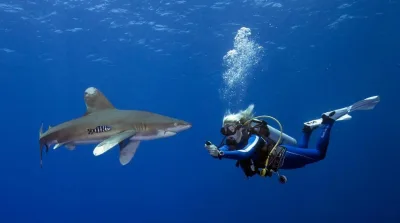As reported by Globetrender, the island nation of Palau has proudly declared its intention to become the world's first carbon-neutral country. This announcement is fantastic news for Oceania and Micronesia, and offers new hope for one of the planet's most biodiverse underwater environments.
If this incredible initiative is successful, Palau will be set to become one of the world's most sustainable countries to travel - right behind Bhutan, the world's very first "carbon negative" country, which removes more CO2 than it creates!
The Republic of Palau
The Republic of Palau comprises over 500 islands scattered throughout the western Pacific. Virgin tropical rainforests, mangrove swamps, seagrass beds, coral reefs, and marine lakes make it one of the most biologically rich and diverse island groups in Oceania. And, all those pristine habitats draw international acclaim and thousands of visitors each year.
However, as a low-lying archipelago, this country is especially threatened by rising sea levels as a result of global warming. In fact, over 25 per cent of the islands' landmass sits less than ten metres above sea level - making it one of the planet's most vulnerable nations when it comes to rising tides. Thankfully, Palau’s government is taking action! This groundbreaking and environmentally sustainable project offers a direct response to climate change with a focus on the islands' key industry – tourism.

Launched in August, Palau’s new environmental initiatives focus on collaboration between Sustainable Travel International, Slow Food International, and the Palau Bureau of Tourism. The project aims to reduce Palau's carbon footprint, including that produced by foreign tourism. At the same time, the project will promote more sustainable processes, including the increased production of locally sourced goods - specifically, food.
Last year, nearly 90,000 international travellers visited this remote island chain, home to only 22,000 people. The tourism industry is responsible for much of Palau's income and employment, contributing 47 per cent of the national GDP. Sadly, while vital to local livelihoods, travel and tourism are also key drivers of climate change. Most visitors fly in from overseas locations and tourists tend to consume a variety of imported goods during their stay.
In response to this trend, Palau will work to increase the production of food by its local farmers and fishers, encouraging domestic spending. The project also aims to place a strong emphasis on sustainable practices and support of female entrepreneurs. By investing in domestic producers, the initiative will reduce Palau's reliance on imports. This fosters greater food security for local communities, boosts the economy, and helps to lower the island's carbon footprint.
Palau's current project aims to turn these systems on their head, offering long-term solutions to strengthen and restore value to local food production. This, in turn, will reduce the cultural and environmental damage caused by large-scale food importation, and improve the livelihoods of food producers both in Palau and beyond.
Meanwhile, the Palau government plans to develop a first of its kind carbon management tool for guests to use during their stay. This web-based application will allow tourists to calculate and track emissions created by their trip and will offer a variety of options for sustainable carbon offsetting.
Programmes for offset will include "blue carbon" initiatives like mangrove restoration, as well as regional sustainable production activities that reduce CO2 emissions. All of the offset choices available to tourists will be based in Palau, and early estimates indicate that the tool could raise over US$1 million per year to support a reduction in carbon production.

As a country, Palau has already taken significant steps to reduce its contributions to climate change and protect its natural habitats both above and below water. Despite its small size, Palau is home to one of the planet's largest marine sanctuaries, has adopted the world's strictest national sunscreen standards, and banned all tour operators from using single-use plastic and styrofoam. Visitors are also asked to sign an eco-pledge upon entry to the country, and risk hefty fines if caught collecting or capturing marine life as souvenirs, feeding fish or sharks, making intentional contact with coral, littering, or disrespecting local island culture.
These innovative projects may provide a blueprint for other island nations facing the need to support tourism while reducing carbon emissions. And, according to Paloma Zapata, CEO of Sustainable Travel International, "This project has enormous potential to transform the traditional tourism model and is a notable step towards lessening the industry's climate impact."





